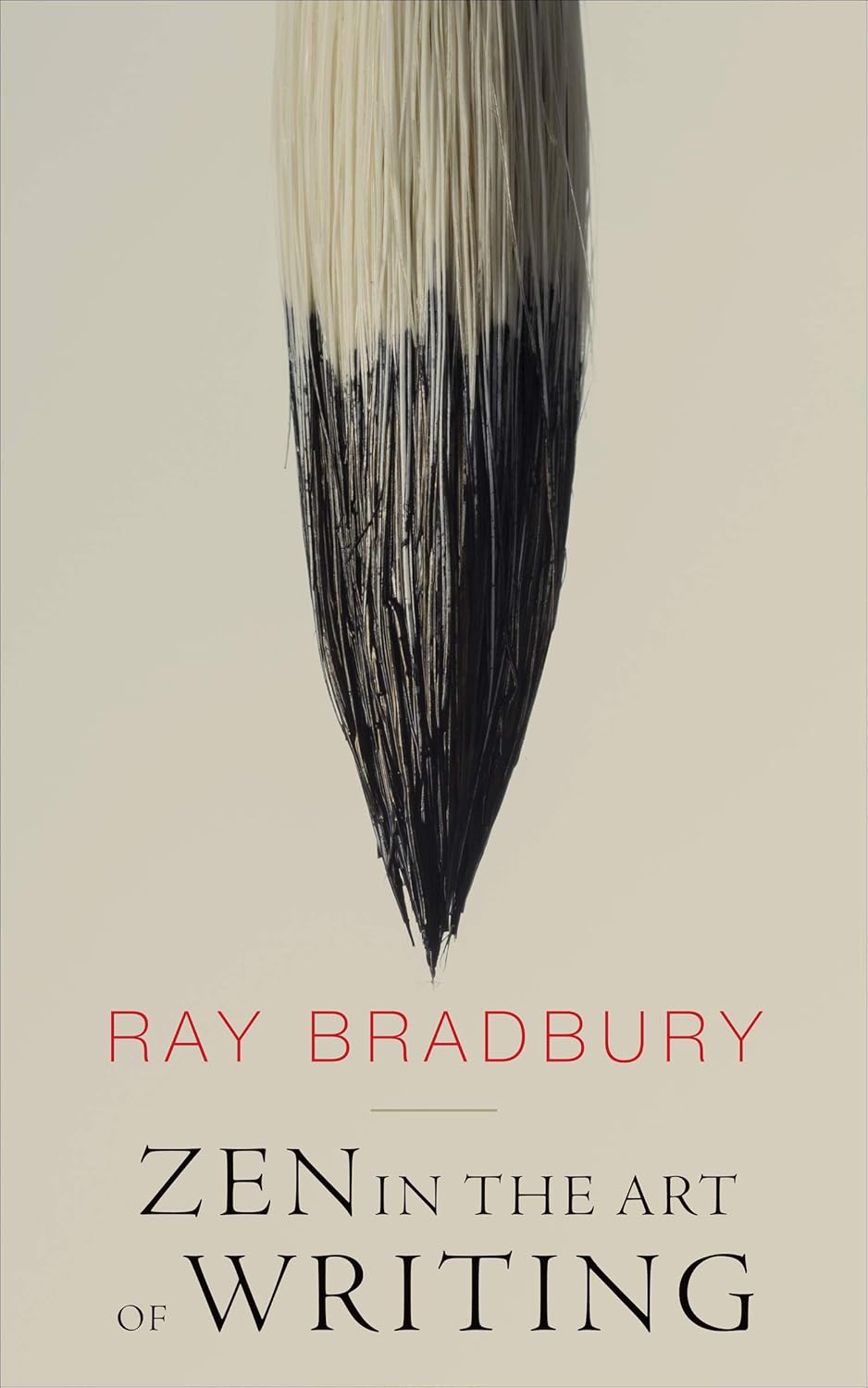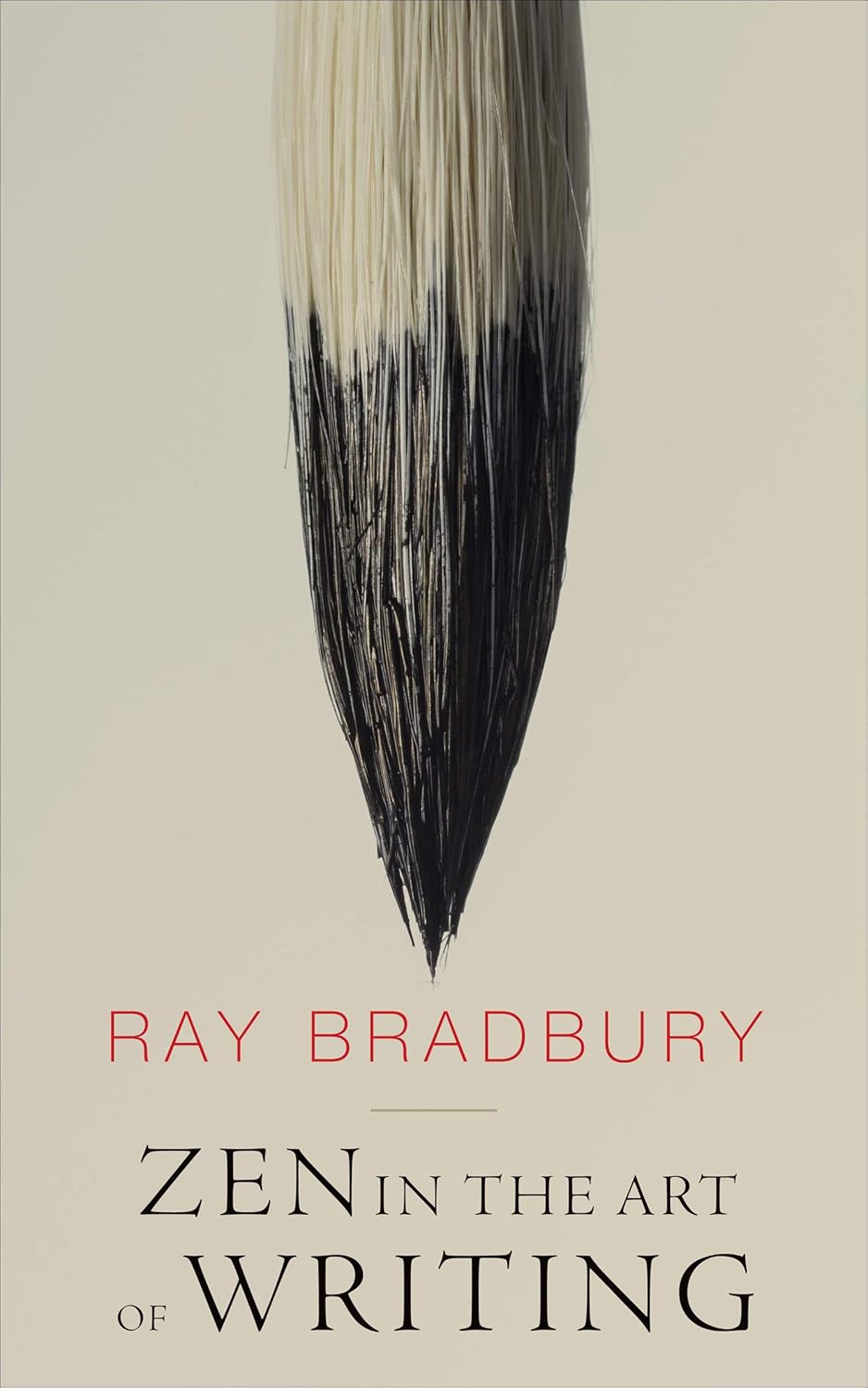Zen In The Art Of Writing by Ray Bradbury is a book that will change the way you think as a writer. It’s not a book that will tell you how to write or what to write about.
It’s a memoir in the form of essays that shares the insight and creativity of the infamous writer Ray Bradbury who has spent most of his life writing every single day.
In these essays, Bradbury reflects on how different events in his life made him who he is as a writer. He used his life’s experience as inspiration to create his most respected works such as The Martian Chronicles, The Illustrated Man, Fahrenheit 451, and more.
Though he passed in 2012, his work and influence lives on forever, which I believe is something he would want.
Here is my review of this incredible book for writers.
Book Details
Published: May 2, 2017
Genre: Writing Reference, Creative Self-Help
Pages: 191
Publisher: RosettaBooks
My Rating:
DISCLOSURE: Some of the links in this post contain affiliate links. At no additional cost to you, I may earn a commission. I only recommend things I’ve used or trusted others have used and had a good experience with. Read more about it in the Privacy Policy.

Zen In The Art Of Writing
By: Ray Bradbury
In a rush? Jump to a section that sparks your interest below.
Learning About Ray As A Person
I can’t lie and say I knew who Ray Bradbury was before I picked up this book. But My God, I’m so glad I got a chance to know him through this book.
Being I wasn’t used to his writing style initially, it took a while to grasp the his lingo. But I learned to appreciate the way he told his story through his essays.
And with each essay, there was a lesson, a nugget for writers to take. He has seen and experienced life and death firsthand throughout his life, which gave him the ammunition to use for his characters.
“So while our art cannot, as we wish it could, save us from wars, privation, envy, greed, old age, or death, it
can revitalize us amidst it all.”
The way he soaked up life from his own eyes and those around taught him how to give his stories depth, and birthed something very beautiful. He was driven by doing what he loved, and not being persuaded by naysayers or non-believers.
“One day I burst into tears, wondering what devastation had happened to me. The answer was: Buck
Rogers. He was gone, and life simply wasn’t worth living. The next thought was: Those are not my friends,
the ones who got me to tear the strips apart and so tear my own life down the middle; they are my
enemies. I went back to collecting Buck Rogers. My life has been happy ever since.”
Staying true to who he was, what he loved and enjoyed is what made Bradbury a good, no, great writer and noticed by others.
Bradbury’s Advice To Writers
Bradbury said that quantity will bring quality when it comes to anything. As for writers, you must write a lot before it gets good.
“For I believe that eventually quantity will make for quality.”
“Quantity gives experience. From experience alone can quality come.”
It’s easy to quit when things aren’t working or as good as you want it to be. But if you want to be good at something, you have to keep going. And that’s hard to do when you don’t have any passion, love, zest for what you are doing.
“I believe one thing holds it all together. Everything I’ve ever done was done with excitement, because I
wanted to do it, because I loved doing it.”
And that goes for writing. It’s a job you either dread or enjoy. And it’s not about the reward at the end, which is either money or fame. It’s about the process in creating good art.
“The artist must not think of the critical rewards or money he will get for painting pictures. He must think
of beauty here in this brush ready to flow if he will release it.”
So if you are not enjoying the writing process, you should find something else to do, because life is too short and unexpected to do anything you dread or hate.
Like Bradbury said, write about what gets you doing. Or like Peter Griffin from Family Guy said, “What grinds your gears?”
And how can you make that into a story? Just think about it, the girl at your job who is head over hills for this boy she met online and she keeps talking about meeting him for the first time.
Does that annoy you? Give you butterflies? Or gives you the creeps? Let your imagination run wild and write a story about it.
Why Did I Pick Up This Book?
Besides being an avid reader, I am a writer. Always have been, always will be. And that is what made me pick up this book in the first place. Within the collection of essays, I knew that Bradbury would drop a few pointers along the way and I picked up quite a few.
Reading this book made me change the way I think as a writer. It gave me a different perspective on how and where to draw inspiration from. Will it be something I’m passionate about? Sure.
Or is it something that annoyed the heck out of me? Possibly. The point is, to take life’s lessons and point of views, make a list, and let passion run with it.
“What do you want more than anything else in the world? What do you love, or what do you hate? Find a
character, like yourself, who will want something or not want something, with all his heart. Give him
running orders. Shoot him off. Then follow as fast as you can go. The character, in his great love, or hate,
will rush you through to the end of the story. The zest and gusto of his need, and there is zest in hate as
well as in love, will fire the landscape and raise the temperature of your typewriter thirty degrees.”
As a writer who has only written blog posts for different businesses, I have grown tired of the same old thing. I’ve been yearning to go back to creative writing like I did as a teenager.
And that is what made me want to read the Zen in the Art of Writing, to find a new light on how to think, how to release, and learn the tactics from one of the greats in the literacy world.
Takeaways From The Book
Before I get into the quotes that will live on with me forever, I wanted to give you the quick takeaways I learned.
Write first, and don’t you dare edit until you are finished. – I used to edit while writing, but didn’t realize the true beauty it is to write none stop, letting my fingers be guided by my mind on the fly.
Love what you do no matter what. – In the 3 decades on this Earth, I am just now learning to trust my gut and God’s word than to listen to the other humans in this world. Staying true to who I am is what matters, and not what someone else thinks or feels I should do with my life.
When in doubt, use life’s experience to give you inspiration. – I’ve never thought to use my own life’s experience or other people’s stories to create my own literary art. I’ve noticed that random people, almost everyone trusts me with their personal stories. I cherish and honor that. But I’ve never thought to use that as inspiration to tell a great story.
Read everything. – Read anything and everything you can get your hands on because inspiration is everywhere. That’s why I am a big believer of not just reading a certain author based on race or beliefs. I’m interested in all stories because I believe it will help shape my worldview and perspective on everything life has to offer.
Favorite Quotes That Changed Me As A Writer
“And what, you ask, does writing teach us? First and foremost, it reminds us that we are alive and that it is
a gift and a privilege, not a right. We must earn life once it has been awarded us. Life asks for rewards back
because it has favored us with animation.”
“If you are writing without zest, without gusto, without love, without fun, you are only half a writer. It
means you are so busy keeping one eye on the commercial market, or one ear peeled for the avant-garde
coterie, that you are not being yourself.”
“What do you want more than anything else in the world? What do you love, or what do you hate? Find a
character, like yourself, who will want something or not want something, with all his heart. Give him
running orders. Shoot him off. Then follow as fast as you can go. The character, in his great love, or hate,
will rush you through to the end of the story. The zest and gusto of his need, and there is zest in hate as
well as in love, will fire the landscape and raise the temperature of your typewriter thirty degrees.”
“What can we writers learn from lizards, lift from birds? In quickness is truth. The faster you blurt, the
more swiftly you write, the more honest you are. In hesitation is thought. In delay comes the effort for a
style, instead of leaping upon truth which is the only style worth deadfalling or tiger-trapping.”
And when a man talks from his heart, in his moment of truth, he speaks poetry.
Who Is This Book For?
This book is for writers who are looking for a fresh look, a fresh start, a new way to find inspiration in their work. What drives their purpose. What will motivate them to write a story out of this world. And finding ways to develop their craft.
It’s not a quick fix so if you are looking for clear tips on how to write better, this is not the book for you. Though it will ultimately help you write with more depth and feeling, but you will have to read the book to gain the answers you are looking for.
Bradbury doesn’t give you a clear cut “here you go” answer to how to write better. However, he tells his story on how he gets it done, how he created the masterpieces over the many decades he existed.
He explains how his love for life helped his storytelling capabilities come to live.
So if you want to get writing tips from a respected writer, this is the book for you.
Til next time,
– Much Love, Ash ❤️



Reply